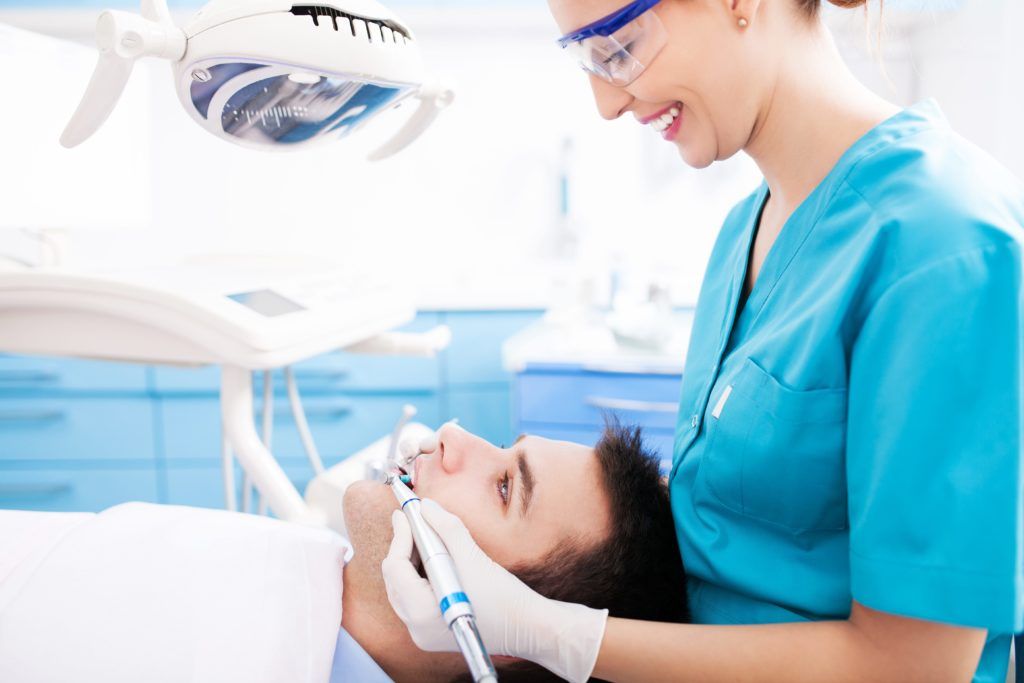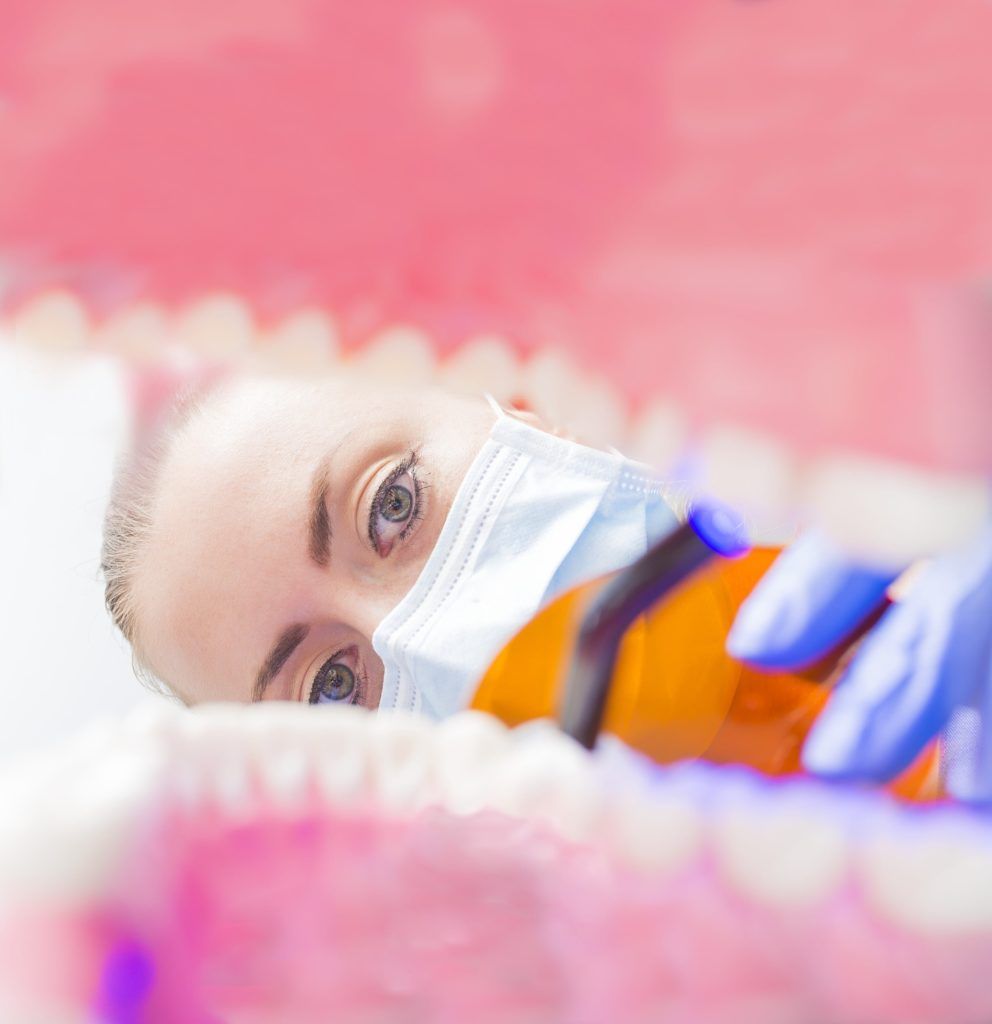The second week in April is devoted to celebrating dental hygienists. The profession of dental hygienists began back in Connecticut during 1913 once dental science realized that oral hygiene is a key factor in the prevention of decay and disease. The profession has continued to grow since that time and is expected to continue to grow. Currently, there are over 200,000 dental hygienists in America, but that number is estimated to increase by 38% by 2020. But, what exactly is a dental hygienist and what is their role so important for thousands of dental offices around America?
Dental hygienists are responsible for many tasks around your dentist’s office and play a large role in helping Dr. Sadati meet your dental and cosmetic dental needs. At any given moment during your dental appointment, our dental hygienists could be doing a number of things behind the scenes while Dr. Sadati is working on your teeth.
To help Dr. Sadati better serve your dental needs, dental hygienists have to undergo specialized education. Dental hygienists generally complete an extensive two-year training program with classes in patient care, anatomy, physiology, pharmacology, immunology, chemistry, microbiology, pathology, dental hygiene, radiology, and dental materials. In some cases, additional classes in education, business administration, basic sciences, marketing, and public health may also be taken.
Once dental hygienists complete their education, they must pass the National Board Dental Hygiene Examination and the Florida state licensure examination. Both exams have hundreds of questions testing their clinical dental hygiene skills and their knowledge of dental hygiene. Dental hygienists also have to pass a clinical board where they must find their own patients to perform dental hygiene treatment on. Once passing these exams, dental hygienists earn the title “R.D.H” for “Registered Dental Hygienist”.
Because of their extensive training, dental hygienists can fit into a variety of roles while helping out around the office. Prior to your dental consultation, dental hygienists will perform and develop dental x-rays. They also perform screening procedures such as taking your blood pressure, pulse, and filling out your dental chart with information about your health history for Dr. Sadati. By performing these tasks, dental hygienists prepare and organize all the necessary information that Dr. Sadati needs, helping your appointment to be quicker and more efficient.

Although many people believe that dental hygienists simply clean teeth, they actually do far more than this. In addition to developing radiographs, completing screening procedures, filling out your dental chart, assisting Dr. Sadati, and educating you about ideal dental health practices, dental hygienists can also check bone levels, evaluate gum health, personalize their teeth cleaning approaches for every patient, and provide home care instructions. In some cases, dental hygienists may also be able to perform local anesthesia injections to numb patients prior to their dental treatment.
Your dental hygienist can also help with patient education and can provide guidance on oral health strategies. For example, dental hygienists can show you the proper technique for brushing and flossing, as well as provide nutritional guidance on oral health. Dental hygienists can also detect if your oral health home care is not adequate and needs improvement.

But dental hygienists care about more than just your oral health routine, they care about your overall health too. Many people don’t realize that the bacteria lingering in the plaque and tartar deposits on your teeth can actually cause damage to your overall health. Serious medical health conditions such as cancer, heart disease, and diabetes are all related to your oral health. Our dental hygienists know this and encourages good oral habits as a way of decreasing the risk of these medical conditions.
Although our dental hygienists have decided to join the Sadati Center for Aesthetic Dentistry family, not all dental hygienists choose to work in dental offices. Some dental hygienists work in hospitals, schools, and public health clinics. In these locations, they can provide important dental care and education to communities that need it the most. Dental hygienists can also work as educators, researchers, and administrators.
In the end, dental hygienists have many talents that most people don’t recognize. At at the Florida Center for Aesthetic Dentistry, our dental hygienists are always available and willing to give you the best dental treatment during your appointment. Schedule a consultation and visit our wonderful dental hygienists today!

